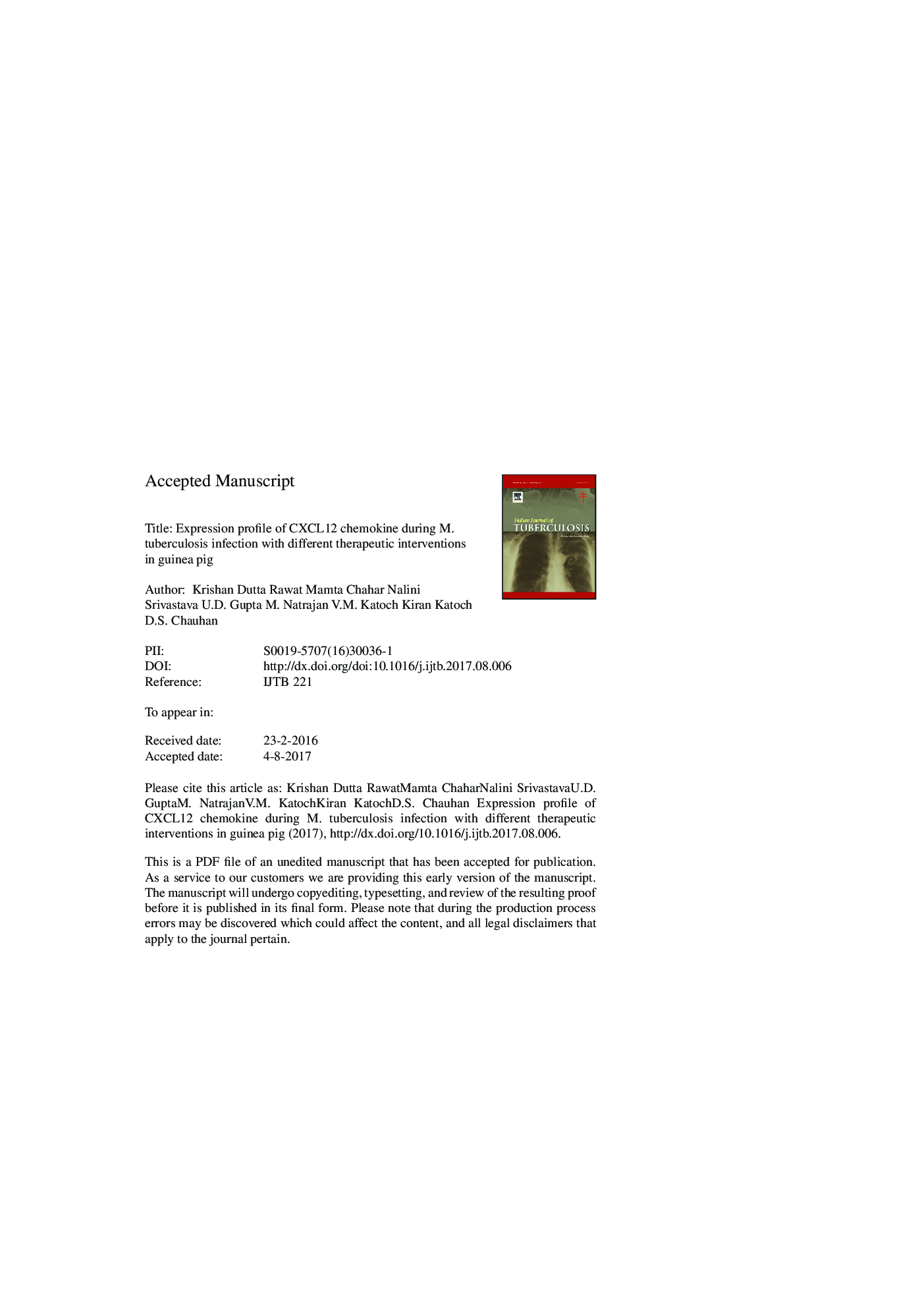| Article ID | Journal | Published Year | Pages | File Type |
|---|---|---|---|---|
| 8745813 | Indian Journal of Tuberculosis | 2018 | 24 Pages |
Abstract
Mycobacterium indicus pranii (MIP) already established as an immune-modulator in mycobacterial infections generates immune response by acting on CXC chemokines. In the present study, the immunomodulatory effect of MIP in conjunction with chemotherapy against M.tb infection was evaluated by colony forming units (CFUs) following aerosol infection to guinea pig and by measuring CXCL12 chemokine expression using q-PCR and in situ RT-PCR. Different experimental groups included, infection (Rv), immunoprophylaxis (RvMw), chemotherapy (RvCh) and combination of immunoprophylaxis + chemotherapy (RvChMw) group and normal healthy (NH) group. In the combination of immunoprophylaxis + chemotherapy (RvChMw) group, the CFU counts reduced significantly (p < 0.001) at 4th week of infection as compared to other treated groups (RvMw and RvCh group). The expression of CXCL12 was recorded in all the treated groups of animals. The study demonstrated suppressed expression of CXCL 12 in both immunoprophylaxis as well as chemotherapy groups (6th and 8th week) that become elevated in immunoprophylaxis plus chemotherapy group (10th week), at which time point no CFUs were detected in RvCh and RvChMw group. The findings indicate that the expression of CXCL12 is associated with good response to anti - tubercular treatment. Thus, prior immunization with MIP appears to show good immunomodulatory effect to release CXCL12 chemokine during infection and also correlates with enhanced effect to chemotherapy.
Related Topics
Health Sciences
Medicine and Dentistry
Infectious Diseases
Authors
Krishan Dutta Rawat, Mamta Chahar, Nalini Srivastava, U.D. Gupta, M. Natrajan, V.M. Katoch, Kiran Katoch, D.S. Chauhan,
